See the differences between hydraulic and pneumatic systems in our detailed guide: how each system works, its applications, and how to choose the right one!

Wondering about the difference between hydraulic cylinder and pneumatic cylinder systems? Before you make a product selection and purchase, understanding the differentiation of pneumatic vs hydraulic cylinder systems is essential, as it will have a significant impact throughout your application.
To help you choose between a pneumatic cylinder and vs hydraulic cylinder, we are breaking down what is the difference between pneumatic and hydraulic systems, the pros and cons of each, what option is best for your application, and whether you need a hydraulic cylinder repair or an upgrade for your system. Let’s dive right in!
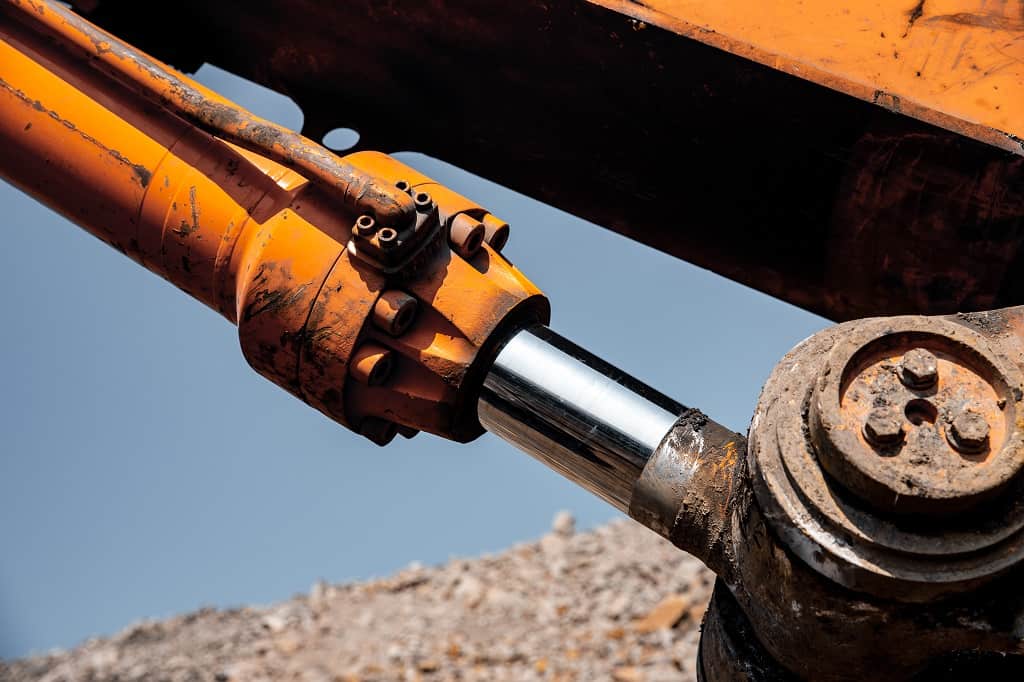
To better understand the difference between hydraulic and pneumatic system options, let’s start with the basics.
Pneumatic cylinders are a branch of engineering that uses pressurized gas or air to affect mechanical motion. Today, pneumatic systems are utilized for several devices, from small handhelds to large machines, and serve a range of functions. Typically, these pneumatic systems are powered by compressed air or inert gas and consist of interconnected sets of components including a gas compressor, transition lines, hoses, gas, air tanks, and standard cylinders. With these pneumatic cylinders, the airflow is regulated by a manual or automatic solenoid valve, while the pneumatic cylinder transfers energy from the compressed gas to mechanical energy.
Commonly today, pneumatic applications use pressures between 80 to 100 pounds per square inch. With this system, the compressor’s ability to compress gas is limited by the compression ratios.
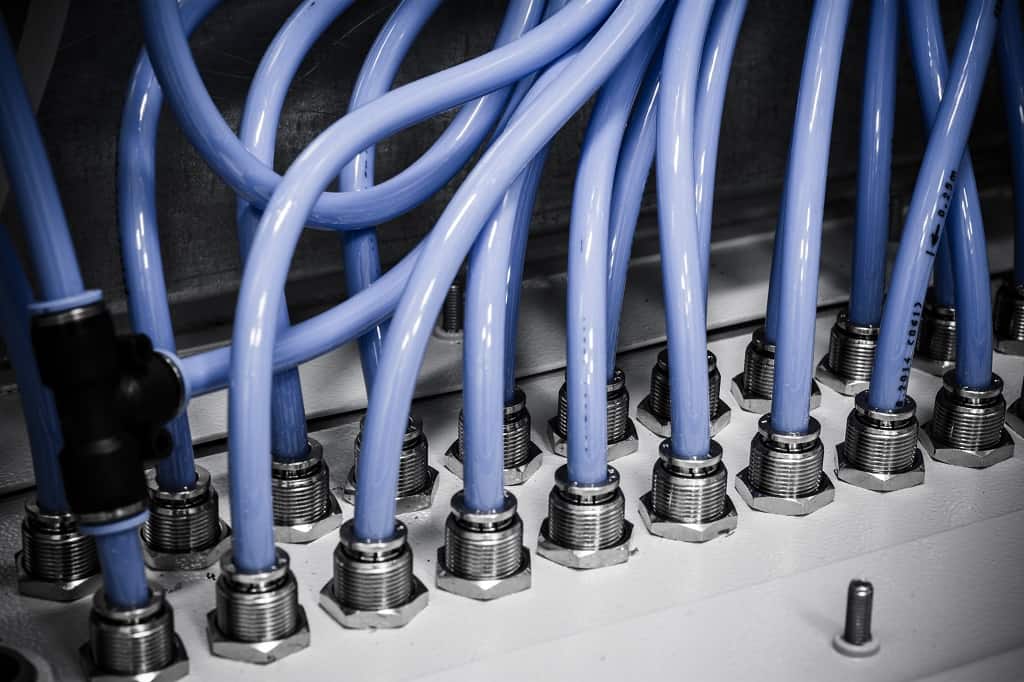
Typically, pneumatic cylinders are chosen over hydraulic cylinders due to their lower cost, improved flexibility, and higher safety levels. With this in mind, a pneumatic cylinder is best suited in scenarios that have no risk of contamination, meaning they offer a very clean environment already. This makes pneumatic cylinders ideal for industries such as biotech, dentistry, pharmaceutical, and for suppliers.
When you compare hydraulic system and pneumatic system designs, pneumatic systems are touted for their straight and simple design, which is great for preventing clogging and reducing maintenance. In addition, these systems are easy to install and are quite portable.
In addition, pneumatic cylinders typically use tried air or gas that’s free of moisture, preventing any issues to internal components.
Ultimately, pneumatic cylinders offer long operating life, come at an inexpensive cost, and are easy to obtain and store, making the pneumatic cylinder a top choice for many applications.
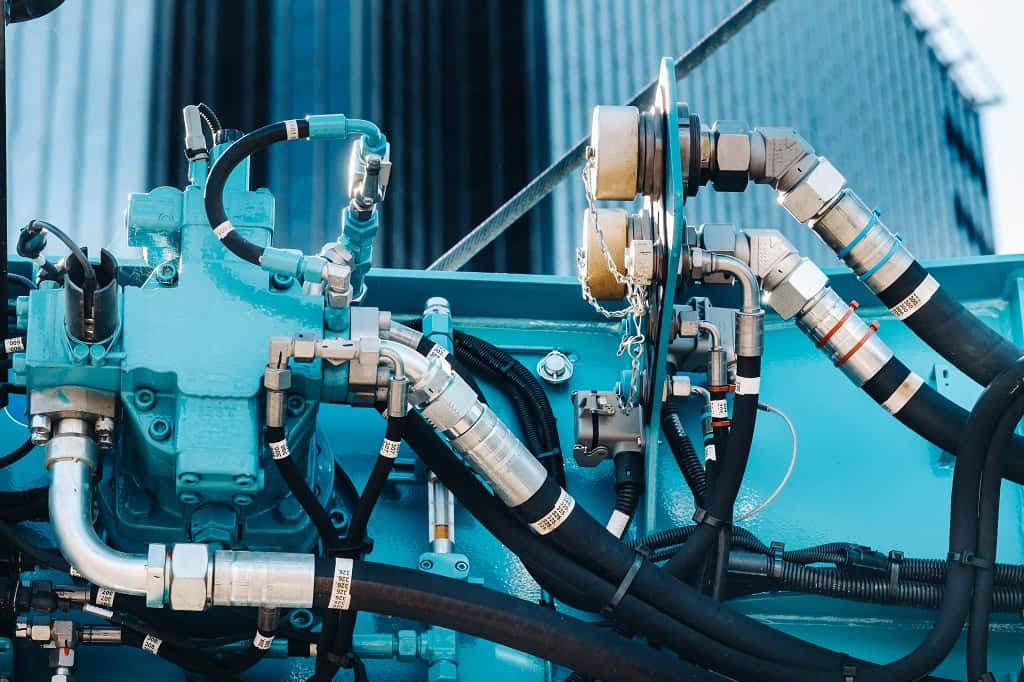
On the other side of the hydraulic vs pneumatic systems, debate is the hydraulic system.
Hydraulic systems are used for the control, generation, and transmission of power with pressurized liquids. This technology involves mechanical properties and the use of liquids to function.
With hydraulic cylinders, there are many components involved, including a pump, plus valves to control the force and velocity of actuators. This makes a powerful system, with hydraulic cylinders utilized in industrial applications with 1,000 to 5,000 psi, or more than 10,000 psi for a more specialized application.
Unlike a pneumatic system, hydraulic systems are often large and complex. The hydraulic cylinders require more room, and a container is required to hold hydraulic fluid that flows through the system, making it a less portable option. With this in mind, hydraulic cylinders also tend to be more expensive, though they can lift and move much larger materials.
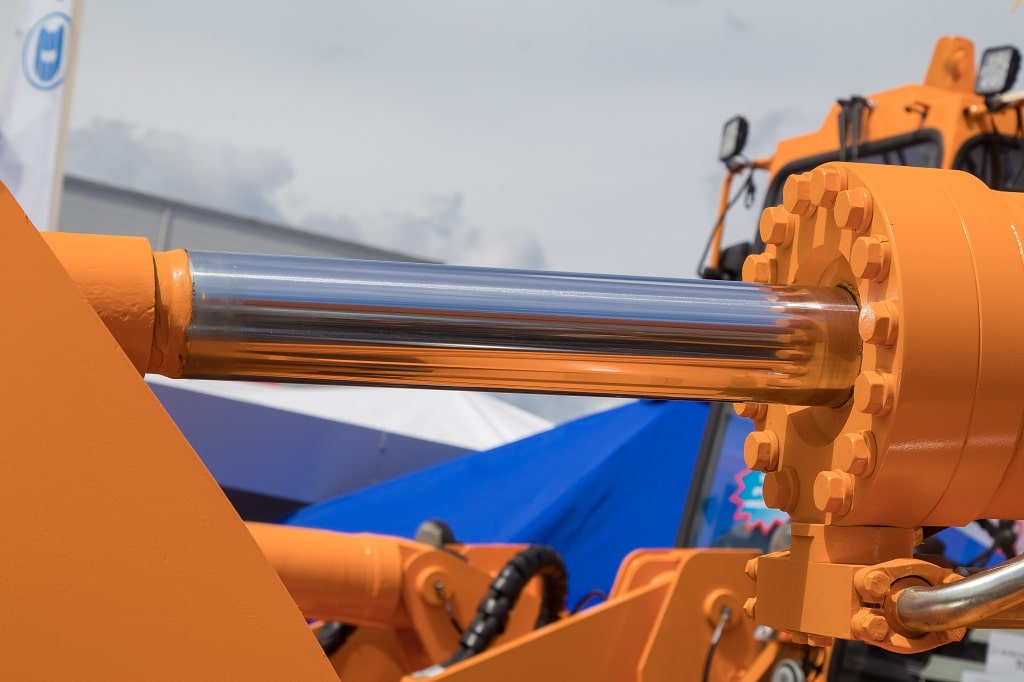
Hydraulic cylinders are wonderful for moving heavier loads than that of a pneumatic cylinder, and provide higher force due to the compressibility of liquids. In addition, these hydraulic cylinders can serve many purposes at once, including lubrication, cooling, and power transmission, and operate at higher pressures to generate higher force.
While they can provide more force and lift heavier objects, hydraulic cylinders are also much more complicated than pneumatic cylinders. Since they include hydraulic fluid, a viscous fluid that requires more energy to move, it comes at a higher cost to maintain and store the additional liquid, on top of the heavy equipment.
In addition, hydraulic cylinders can have serious issues if there are any leaks. For this reason, these systems are not safe to use for food applications, due to a high risk of hydraulic oil leaks. While proper maintenance can minimize the risk of leaks, it’s still best to use pneumatic cylinders in these more critical areas, like food applications.
There are many features to be aware of when it comes to pneumatic equipment.
Pneumatic cylinders are part of a highly pressurized system that relies on compressed air to generate force. While the cost of this equipment is much less than a hydraulic-powered machine up front, they also offer a better rate of flexibility and improve the safety levels of the whole system. In addition, a pneumatic actuator has a long operation life and requires less maintenance, as it’s less likely to incur shock damage. With this in mind, pneumatic cylinders are used in everything from powering vacuum pumps to manufacturing and assembly lines, and much more.
Due to the way, pneumatic systems are constructed, they do struggle to keep a consistent velocity and tend to be less controllable than hydraulic-powered machines, while also being able to manage less force than their counterparts.
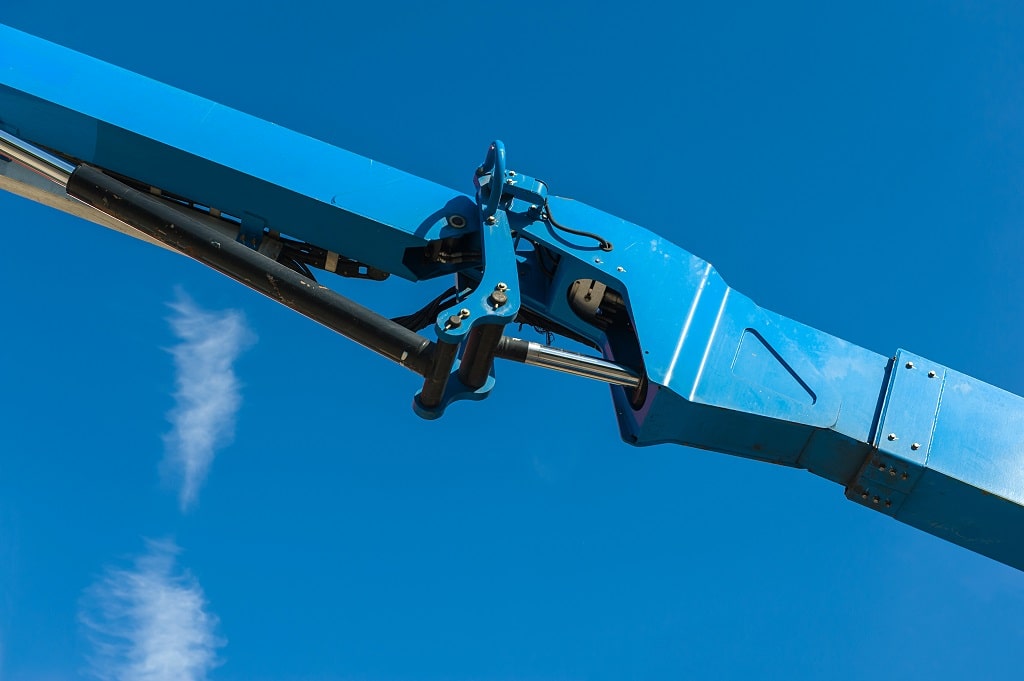
Hydraulic-powered machines operate by generating force through pressurized fluids, including oil, glycol, or another flame-resistant liquid. In this system, fluids move throughout, generating force in different places to create movement. With this design, hydraulic cylinders have a greater capacity for force and allow for improved precision and control.
With this high-power operation, hydraulic cylinders are used in a range of equipment, including:
While they can handle much more force, hydraulic machines do require regular maintenance and tend to be much more complicated. If you opt for hydraulic applications, it will be essential to perform regular inspections of the equipment to avoid system failure.
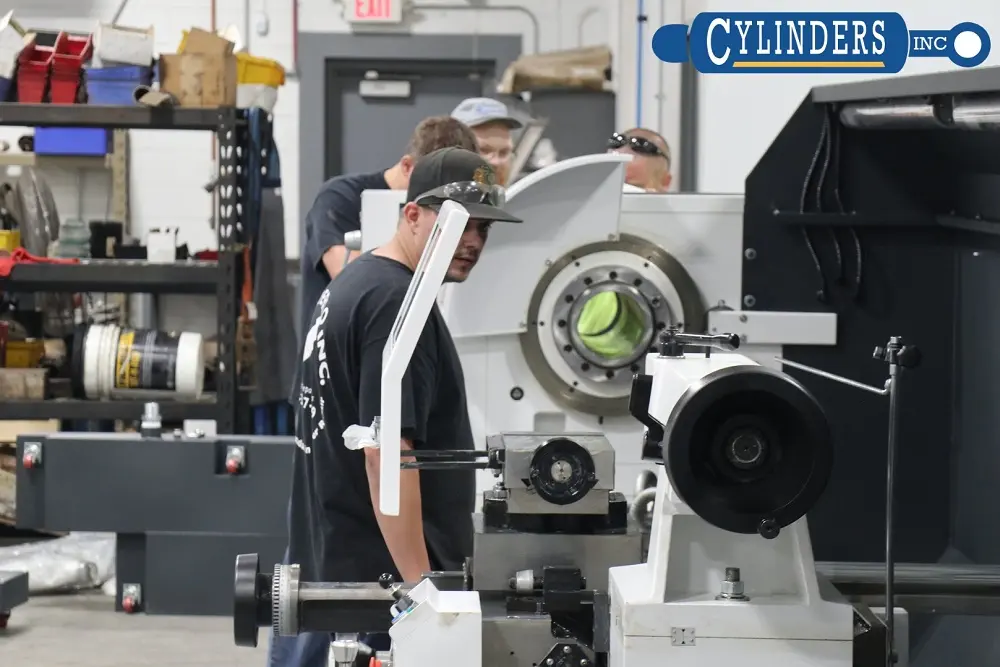
There’s a lot to consider when looking at the difference between hydraulic cylinder vs pneumatic cylinder systems.
First off, pneumatic systems use gas to transmit power, compressing the gas to do so, while hydraulics rely on liquid fluid power. Since pneumatic applications rely on pressurized systems, they cannot produce more than 100 pounds per square inch. In addition, their construction causes a delay in movement.
Hydraulics move liquids to move the pressure to different areas, creating a much stronger force. With this in mind, hydraulic presses can create a force from 1,500 to 10,000 PSI, permitting the systems to move and lift much heavier, larger objects.
In addition, hydraulic and pneumatic cylinders are made differently. As expected, hydraulic systems are manufactured with thicker pieces of metal, allowing them to withstand high levels of pressure.
Whether you need a smaller, more portable cylinder option or a system that can withstand a heavyweight, both hydraulic and pneumatic cylinders offer proven benefits for your applications.
With the knowledge of the difference between hydraulic and pneumatic system applications, it’s time to upgrade your systems! Help from our industrial-grade cylinder repair company, Cylinders Inc. can support you through the process. To learn more, contact us today.
Explore articles on cylinder repair, maintenance best practices, and manufacturing insights.
To all who’ve been part of our journey this year,As we come to the close of another year, I would like to take a moment to thank you — our valued customers, partners, and colleagues — for the continued trust you place in Cylinders, Inc. Every day, our team has the privilege of supporting the businesses that keep America’s construction, industrial, and manufacturing sectors moving. It’s a responsibility we take seriously, and one we work hard to uphold with every repair, inspection, and consultation.
When winter takes hold across the United States, it’s more than just a dusting of white that greets commuters, it’s a full-scale challenge to keep roads open, fleets operational, and heavy machinery ready. Many U.S. states see between 40 and 70 inches of snow each year, with Vermont averaging about 89 inches annually and Michigan […]